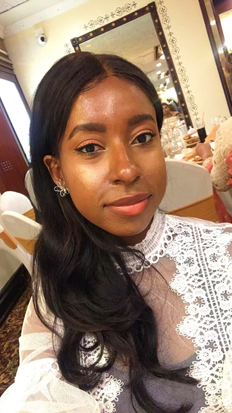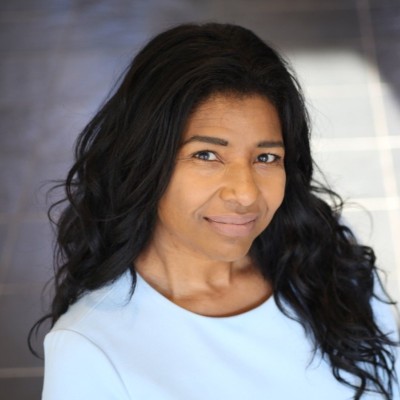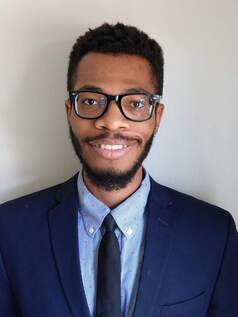|
Dean Carla White is highly regarded as a confidant by BIPOC students at the UNC Eshelman School of Pharmacy (ESOP). As Associate Dean for Organizational Diversity and Inclusion, Dean White is a champion for equity and inclusion. She leads by example, allowing humility and transparency to guide her everyday actions. She shared her story with me via Zoom interview on February 8, 2021.
Christian Brown: How did being Black impact your studies? Carla White: I’ve always loved being Black. The diverse intellect, creativity, and perspectives within Black culture truly enriched my life experiences. This started with my grandmother. Everyone in the community respected her. She was a relentlessly regal individual that was proud of her Black culture and an advocate for social justice in Pennsylvania. At only 18 years old, she was one of the first and youngest people to testify before Congress [for Civil Rights]. She was my example. I knew nothing else but to love myself. CW: In undergrad [at WVU], my roommate and I were the only Black girls in the dorm, and everyone would come to our room to hangout. I believe most people enjoy learning about various cultures. While in pharmacy school at the University of Pittsburgh, there was only one other black student in my class, and I believe no more than 4 in the entire School of Pharmacy. CW: Reflecting back on that, I did not feel connected as a student. Pharmacy school felt more like a process rather than an experience. It’s interesting that, currently, I sit on the School’s Board of Visitors, and feel more connected now as an Alum. CB: How has being Black impacted your career? CW: After a few years in community pharmacy in Pittsburgh, I moved to Oregon in the early 90s. There were so few people of color that customers would knock over displays while staring at me behind the counter. CW: I started with WRAL-TV Raleigh [NC] in 1999. In the media, people would address news anchors and reporters by name and say, “Wow, it’s this person,” but about me they would say, “Wow! That’s the Black pharmacist at WRAL.” To others, being Black was more important than my knowledge or expertise. It’s the first thing that people would say. It was absolutely crazy. CW: It was a consistent theme across every area of my professional career. When I was a pharmacy manager and a district manager, colleagues would have to frequently point out what my role was. Bias is prevalent and hard to mitigate without a commitment to acknowledge and educate. It leaves you seeing the world through a narrow lens. CB: That’s powerful. And you’ve been a leader in so many different roles from founding a consulting group to working in women’s health and infectious disease to directing pharmaceutical care labs at ESOP. Will you share how you came into your most recent position as Associate Dean for Organizational Diversity and Inclusion? CW: Oh, I’m so ashamed! I said “no” twice! I didn’t want my career to be aimed in the direction of D&I. I was afraid that the work would be further marginalized. People would think, “Of course the Black faculty member would do this,” and “Of course this kind of work would be important to her.” I was also concerned that this could potentially be a window dressing measure and not a real commitment. To add to that, I wasn’t an expert in the field- personal experiences bring tremendous insights, but they don’t make you an expert or necessarily mean that you have an interest in DEI. CW: Then the [former] Dean sent in reinforcements- someone else to ask me to take the position, and I started to give it some thought. The Dean expressed that he was deeply committed to improving D&I. So I accepted the position. And now, I’m delighted that he pressed the issue. It is one of the most fulfilling aspects of my career, and it’s amazing to see the value that our investment in strategy development has brought. The great teamwork with my colleagues has led to tremendous progress and opportunity. It’s really cool to see former students in leadership roles! CW: There’s certainly more work to do. Faculty are realizing that it’s everyone’s responsibility to contribute towards cultural transformation to produce a diverse pharmacy workforce. This is a priority for the School, and we are leading in this space. CB: Thank you so much for your candor and honesty. How did it feel to be the only Black faculty member for so long? CW: We get used to being the only one. When there is no representation, profound loneliness and isolation can be experienced. It’s also a challenge recruiting BIPOC faculty. They want to wait until we are a diverse faculty. I am often asked “Carla, how do you do it?” Community and advocacy are critical. CW: It’s also important to realize that singular interventions aren’t going to fit for the whole BIPOC “group.” For example, when I was a SNPhA advisor, the African students and Black students members would often gravitate into separate groups based on their cultures. There are differences in these cultures that should be celebrated and respected as such. Often, people think these cultures are interchangeable through composition diversity metrics. CW: In conversations with some Latinx students, I listened to their frustrations on hearing about extracurriculars. As a School, we, as well as our accrediting body, promote extracurricular engagement. However, for some, taking care of their families was top priority, even while in pharm school. Perhaps there is an opportunity to broaden our communication and priorities, and certainly increasing societal equity has a role in this. All this to say, that dimensions of diversity are multifaceted and diverse strategies are needed to build an inclusive community. CB: You’re right. Celebrating BIPOC differences is important. Thank you so much for taking the time to share your story. You’re an inspiration! CW: Thank you for the opportunity. Introduction written by: Christian Brown, UNC Class of 2023; PharmAlliance Student
0 Comments
Ensuring equity is an active process, particularly when the world is falling apart. In Black communities, it seems like we are always teetering on the edge- reaching out for support from backs turned. There is an uncommon resilience that is, fortunately or not, common to Black people. This force commands us to find our balance and strengthens us to lend a helping hand. We return to our roots; we give back; we come full circle. Future pharmacist Jodelie Bellot knows what it is like to feel the earth give way, and she is committed to helping others pick themselves up and dust themselves off. “I was born in Haiti and spend most of my childhood there; however, this childhood was abruptly cut short on the afternoon of January 12th, 2010. That afternoon, my once home in Port-au-Prince was ravaged by a devastating earthquake of a magnitude of 7.4. The whole country was plagued with ruin; everywhere I looked was in a state of emergency. Experiencing and witnessing such destruction at a young age really shifted something in me. This gave me a great push to be involved in the healthcare field, and after much reflection, I decided to become a pharmacist. As a pharmacist, I would be able to contribute to my community if something like this would’ve happened again. This journey wasn’t easy: I faced many challenges and setbacks, but I am dedicated to meet my end goal. I am currently a 3rd-year student serving the community through a similar crisis such as the COVID-19 pandemic. I worked all throughout the pandemic from staffing at my local pharmacy to procuring COVID tests and administering the COVID vaccine. I am so glad that I am in the position where I can serve my community in such disasters and I will continue to do so once I complete my studies for my PharmD in 2022.”  Jodelie Bellot, PharmD Candidate in NY Introduction written by: Christian Brown, UNC Class of 2023; PharmAlliance Student
Why is being Black a problem? As a Black woman and a Black future pharmacist, I constantly surprise people. I talk like I have an education; I walk like I have a purpose; and I live like I have a right. Unfortunately, this is not true for many patients who look like me.
We’ve been demonized and ignored and treated as less than human. We are locked out of mainstream society- told to swim against the current and “better ourselves,” only to meet the dam of double standards. This is not a model for health. What we need are role models, such as Dr. Blaise Ndukwe of Kalamazoo, Michigan, to show Black patients that we, too, can wear white coats. “As the only black pharmacist employed with Gull Pointe Pharmacy at the time, I felt a duty from the first day I stepped into that pharmacy to advocate for black and brown patients. While I enjoyed my interactions with all of the patients I assisted, my interactions with black and brown patients, specifically, always felt more special. The way they looked at me, the way they spoke with me. There was always some level of respect and awe there. To be the only young, black, male pharmacist at that pharmacy and one of the only black pharmacists in the city of Kalamazoo, MI. That duty to represent weighed heavily on my shoulders and I fully embraced it. My most memorable encounter was with a black patient who had come through the drive-thru for his monthly refill. The cashiers noted him as a “problem patient” because he never “knew what medications he needed to pick up.” Instead, I saw him as someone who needed more devoted time from a pharmacist. I offered to sit down with him to review all of his medications and he accepted. A few days went by, and I never heard from him again. Then one day, he walked in unexpectedly and asked for me. Sitting down with him to review his medications was an opportunity for me to not only educate him, but for him to open up to me about his experiences at the pharmacy. He talked to me about the personal struggles he faced in his life as a black man and the things he does now to give back to his community. As I listened to him speak, I realized how important it was for him to finally see a pharmacist who looked like him. I realized just how important it was for him to finally see a pharmacist he could be unapologetically black with. Our conversation meant a lot to him, not just from an educational perspective, but also a personal one. He left the pharmacy that day knowing that he had an advocate, someone who would have his back when the other employees labeled him as “difficult” and “drug seeking.” He left that day knowing that he had an advocate who looked like him. He never let me forget just how much our interaction meant to him. Whenever he called he would ask to speak to me, and if I was unavailable, he would let the technician know to tell me how grateful he was for my help. We developed a friendly relationship, and sometimes he would show me pictures of his garden. I always enjoyed my interactions with him. Those moments truly made me feel as though I was fulfilling the duty I gave myself when I first stepped into Gull Pointe Pharmacy.” -Blaise Ndukwe, PharmD Introduction written by: Christian Brown, UNC Class of 2023; PharmAlliance Student February in America is Black History Month. In the annals of pharmacy history, there is precious little concerning Black pharmacists. Leo Butts of Wisconsin wrote the first scholarly work compiling the contributions of Black pharmacists in 1920. He chose the topic for his Degree of Graduate in Pharmacy thesis and was encouraged to pursue this work by his mentor, Nellie Wakeman, the first woman instructor at the University of Wisconsin School of Pharmacy (1). Still today, we see minorities supporting minorities to reach their full potential. Throughout his writing process, however, Butts expressed his disappointment that there was “scarcely a reference to the Negro in pharmacy” in the greatest pharmacy history library in the US (2).
In his thesis, Butts acknowledges a truth that characterizes the Black experience: “it is absolutely necessary for the colored druggists to give not only as good but better services than his white competitors, if he is to be even moderately successful (2).” His work predates the National Pharmaceutical Association by 27 years (3). The only national option for the 1400 Black pharmacists at the time was to join the physicians and dentists in the National Medical Association (2,3). Only in the American South were state organizations available, and their main focus was improving sanitation in Black neighborhoods. In only 16 pages, Butts recounts the most complete history of Black pharmacists to date. Five years later, another student pharmacist writes on the subject. Mozella E. Lewis, likewise, bemoans the lack of Black recognition, and seeks to fill the gaps: “Mention has not been made…because our people have been timid and no other people have thought enough of us to give us serious thought (4).” Even so, Lewis’s words are tainted with the Eurocentric disdain of her African roots as, after extolling the progress of Greeks and Hebrews, she complimentarily concedes that her ancestor, “in his savage way, was a great pharmacist.” Her thesis contains lists of names, cities, and achievements of Black pharmacists beginning with James T. Wormeley, the first graduate of the Pharmaceutical College of Howard University. He graduated in 1870 from the program started three years prior. Following the list of Howard graduates, Lewis lists Black graduates from White institutions, approximately 100 in total, along with their successes. She closes with this: These statistics give us an idea of what the Negro has done in pharmacy, and should encourage the young Negroes interested in this work to improve the many branches of this science in which the Negro has become famous and further develop those phases in which he seemingly has not yet entered to any great extent, so that the Negro will be an outstanding light in the development of pharmaceutical science (4). Written by: Christian Brown Bibliography 1. Bond G. Leo Butts, UW Pharmacy Pioneer . UW Madison School of Pharmacy Historical Alumni Information. https://pharmacy.wisc.edu/alumni-friends/events-awards-programs/historical-information/leo-butts-uw-pharmacy-pioneer/. Accessed January 13, 2021. 2. Butts LV. The Negro in Pharmacy. 1920. 3. NPhA - Home. https://nationalpharmaceuticalassociation.org/. Accessed January 14, 2021. 4. Lewis ME. History of the Negro Pharmacist. Am Drug. 1925. |
�
Categories
All
Archives
October 2022
|





